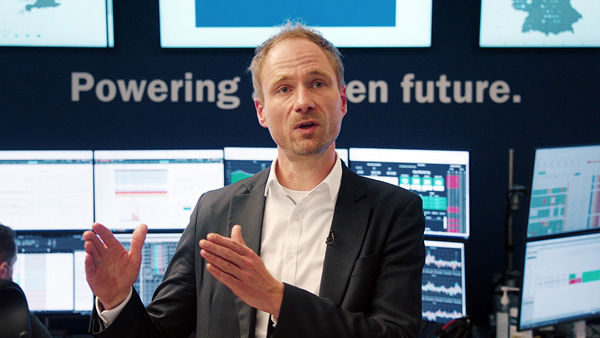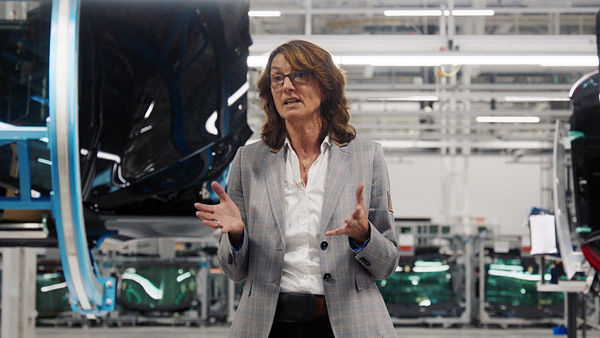Renewable energy, around the clock. This is not science fiction but rather the reality, as automotive brand Mercedes-Benz and Statkraft prove with their collaboration.
Unique collaboration sets new green standard in the automotive industry
“I’m impressed with Mercedes-Benz’ commitment to their sustainability strategy,” says Patrick Koch, Head of German Origination for Statkraft.
Many companies have an ambition to reach net zero. Over the past few years, Mercedes-Benz has gone from ambition to action, which Statkraft can attest to.

Through Mercedes-Benz’ agreement with Statkraft, called a 24/7 Power Purchase Agreement (24/7 PPA), the company has access to 100 per cent green energy in real-time.
Statkraft guarantees that the exact amount of power that Mercedes-Benz requires for its car production and offices in Germany is generated in real time and around the clock.
24/7 green energy
This customised energy solution from Statkraft consists of solar, wind and hydropower – with the solar power coming amongst others from the solar park Schornhof in Bavaria
And when the sun is not shining and there’s no breeze, the flexible hydropower comes in – the part of the solution that fills in the gaps as needed.
“This combination solves a major challenge for industry and renewable energy in general,” says Koch.
The main challenge with renewable energy is that it is weather-dependent. But companies need power even when it’s cloudy, and the wind doesn’t blow. “They need energy 24 hours a day, 7 days a week,” adds Koch.
“Our mix of renewable energy sources is what makes our solution unique.”
To peek into the future of the car industry, look no further than Factory 56 in Stuttgart, Mercedes-Benz’ most advanced car production plant.
Emission-free by 2039
“Factory 56 represents the future of production and home of our S-class and all-electric luxury sedans the EQS. Here, we are setting new standards for the automotive industry and an emission-free world,” says Elke Pußkeiler, Head of Supply Chain for Mercedes-Benz.
The renewable power supply for Mercedes-Benz is ongoing since January 2022: All the company’s production facilities in Germany, including their offices, are now running on 100 per cent renewable power, around the clock.
All thanks to solar, wind and hydropower.

“Our goal is to be totally emission-free by 2039. For us, green energy supply for our plants and sites and thus our cooperation with Statkraft is essential in making that goal a reality,” says Pußkeiler.
Statkraft’s Patrick Koch is impressed by the automotive giant’s ability to turn their ambitions into action.
“Mercedes-Benz is not content with only producing electric cars. They want to take every essential step to make their entire value chain completely green. I believe that this has the potential to inspire the automotive sector and other industries to follow suit,” says Koch.
Meeting the renewable energy needs of the future
Energy needs vary greatly between companies and industries. That’s why Koch doesn’t believe that the traditional standard solutions will be good enough going forward, and that there will be a greater need for more customisation in combining energy sources.
“At Statkraft, more than a century of experience in renewables enables us to find the most effective power solutions to meet the green power needs of the future. We can combine large amounts of wind and solar energy with flexible sources, such as hydropower. And in the future, we can add batteries and hydrogen to the mix,” says Koch.
Watch the full story

More about Statkraft's offer for commercial and industrial companies
Statkraft supplies industrial and commercial consumers with energy, matching their individual needs, managing their risk profile and helping them become carbon-neutral.